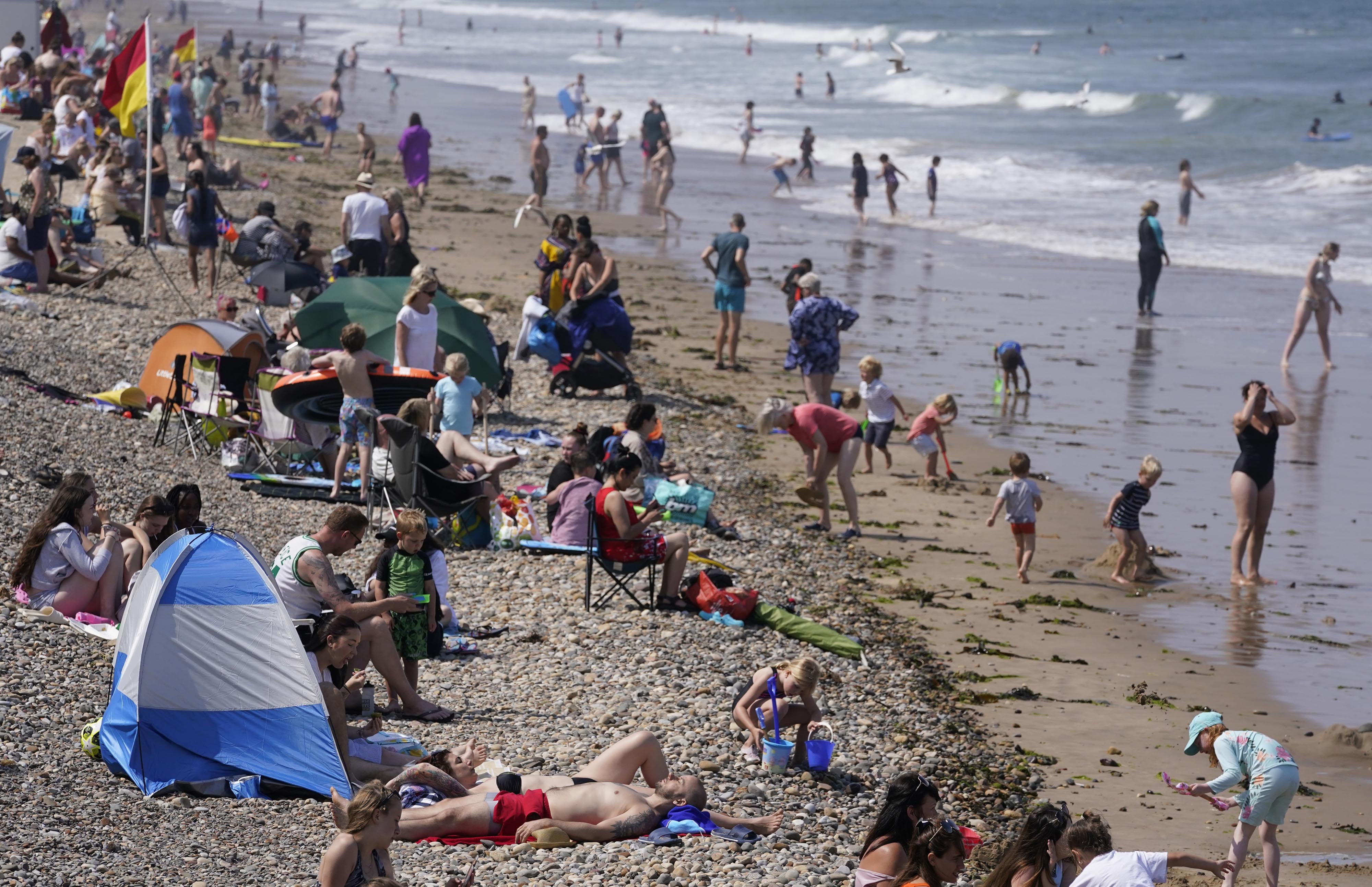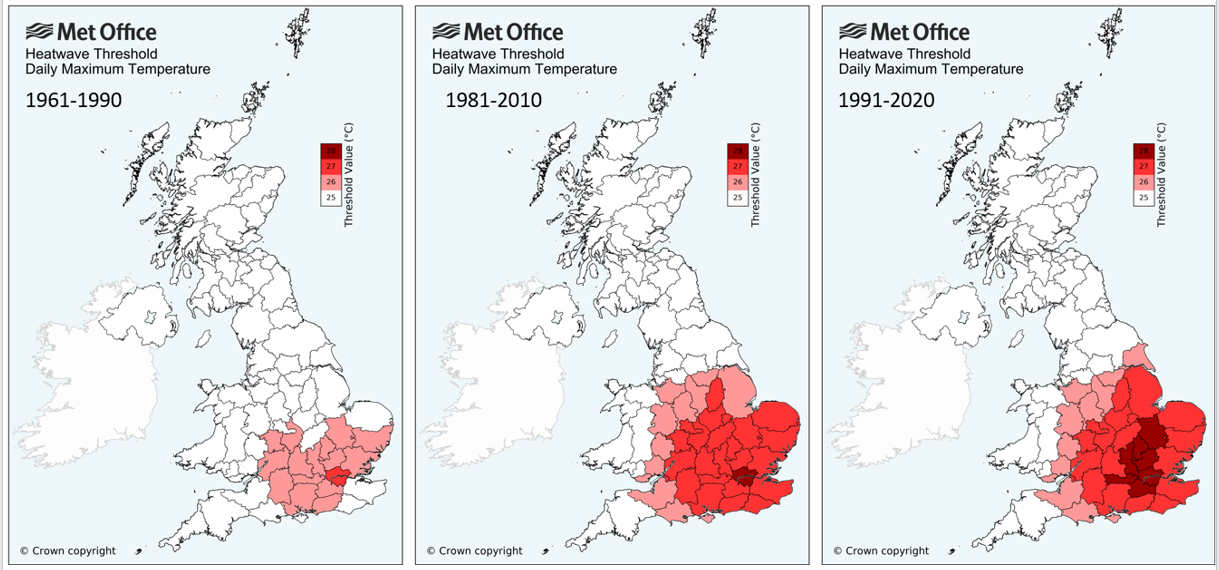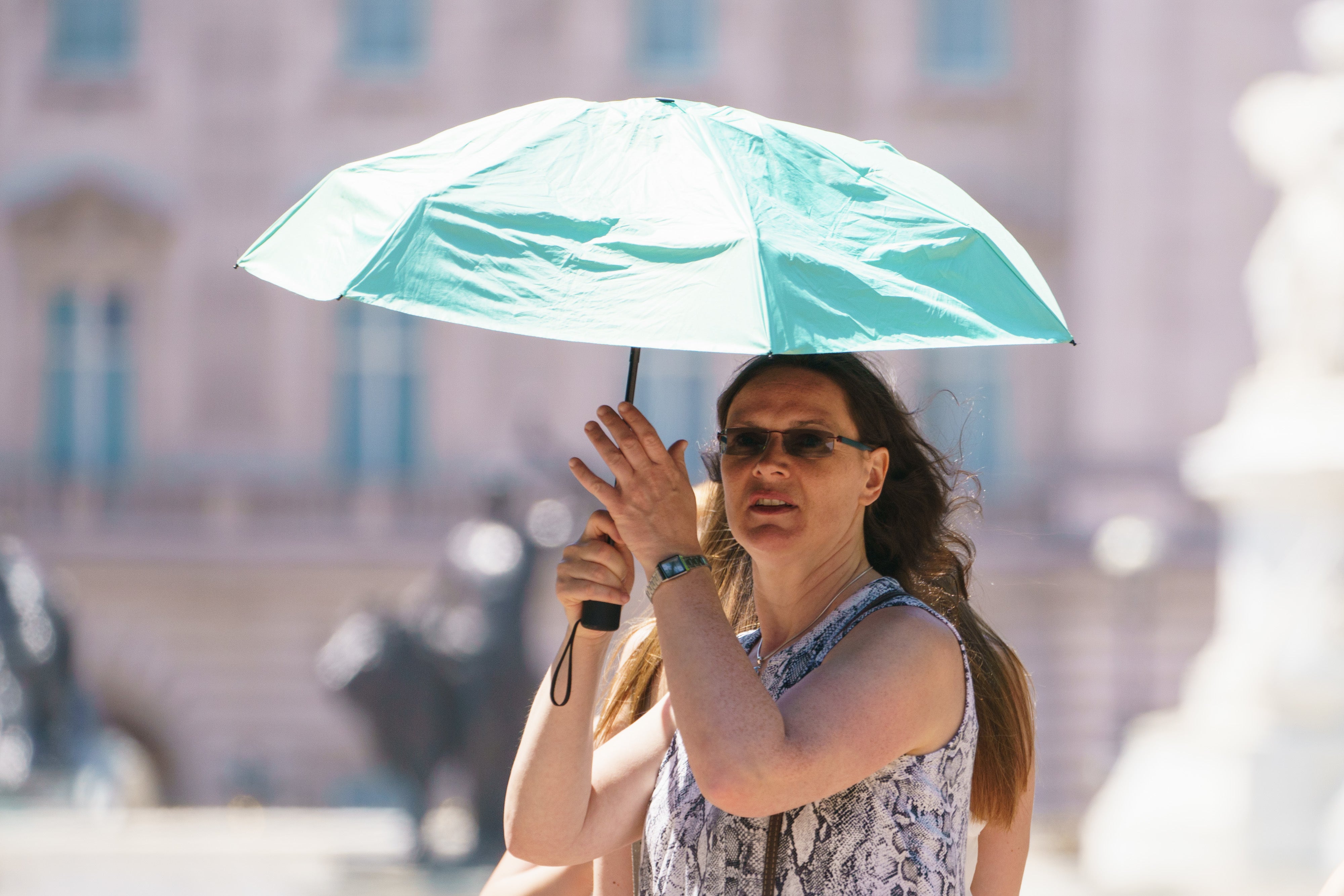What is a heatwave?
Blazing sunshine and scorching temperatures return to UK

Britons are facing scorching weather this week as temperatures soar once again.
The mercury is expected to hit 28C on Monday and remain high throughout the week, passing 30C on Thursday and continuing into the weekend, according to the Met Office.
While there is no denying the UK is experiencing another (very) hot spell, can it be officially classified as a heatwave?
Let’s look at the evidence.
What is a heatwave?
The Met Office defines a heatwave as “an extended period of hot weather relative to the expected conditions of the area at that time of year, which may be accompanied by high humidity”.
The UK experiences occasional heatwaves but these are less frequent and intense than those seen elsewhere around the world.
A record was broken in summer 2019 with a maximum temperature of 38.7C recorded at Cambridge University Botanic Garden on 25 July.

In the UK, hot weather can only be classed as a heatwave if it meets a daily maximum temperature consistently for three days in a row.
This threshold temperature varies across different parts of the UK. This threshold was updated in January 2022 ahead of the summer.
The initial heatwave thresholds were calculated based on the 1981-2010 climatology of daily maximum temperature at the mid-point of the meteorological summer (15 July).

The revised thresholds will use the 1991-2020 averaging period introduced in January 2022. The geographical differences reflect the differences in climate across the UK.
So, whether or not you are in a heatwave can depend on where you live in the UK.
Why do heatwaves happen?
Heatwaves are most common in summer when high pressure develops across an area for a prolonged period of time such as days or weeks.
They can occur in the UK due to the location of the jet stream, which is usually to the north of the UK in the summer.

This can allow high pressure to develop over the UK resulting in persistent dry and settled weather.
Are heatwaves linked to climate change?
Heatwaves are extreme weather events but research shows climate change is making these events more likely, according to the Met Office.
The national weather service says heatwaves are 30 times more likely to occur now than before the industrial revolution because of the higher concentration of carbon dioxide in the atmosphere.
Heatwaves are predicted to become even more frequent, perhaps occurring as regularly as every other year by the 2050s.
What is the difference between an Extreme Heat Warning and a Heat Health Alert?
According to the Met Office, an Extreme Heat Warning is an “impact-based warning designed to highlight the potential impacts of extreme heat to protect lives and property”.
A Heat Health Alert is given by UK Health Security Agency (UKHSA) and is an England-only service that considers the impact of prolonged extreme heat on public health, especially those with long-term health conditions.
How to stay safe in a heatwave:
In England, there are on average 2,000 heat-related deaths every year.
For some people – especially older people, young children and those with underlying health conditions, as well as those who cannot adapt their behaviour to keep cool or who are exposed to high levels of heat because of where they live or work – the summer heat can bring real health risks.

The main health risks posed by a heatwave are:
- Dehydration (not drinking enough water)
- Overheating, which can make symptoms worse for people who have heart or breathing problems
- Heat exhaustion and heatstroke
It can also place a strain on water and energy utilities, road and rail transport and the health and fire services.
Met Office advice for how to stay safe in a heatwave:
- Try to keep your house cool, closing blinds or curtains can help
- Try to stay cool by taking cool showers or baths and/or sprinkle yourself several times a day with cold water
- Avoid too much exercise when very hot
- Drink plenty of fluids but avoid alcohol
- Eat as you normally would
- If you have vulnerable neighbours who may be at risk during a heatwave find out if they would like you to ring them daily
- Try to avoid the hottest part of the day (11am to 3pm) and seek shade where possible
- Wear lightweight, light-coloured clothing, high factor sunscreen and a wide-brimmed hat
- Never leave anyone in a closed, parked vehicle, especially infants, young children or animals
Join our commenting forum
Join thought-provoking conversations, follow other Independent readers and see their replies
Comments


Bookmark popover
Removed from bookmarks